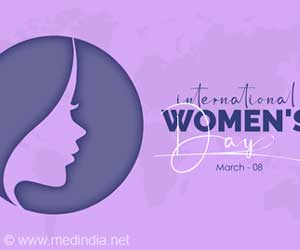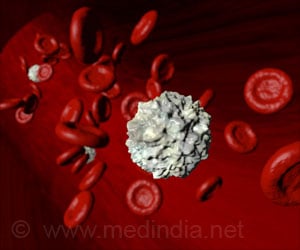Celebrate International Women’s Day 2025 by empowering women’s health, equality, and well-being.

- 60% of women in India are at risk of anemia, a condition caused by iron deficiency
- Menstrual blood loss, especially during heavy periods, is a major contributor
- Poor dietary habits and lack of awareness about iron-rich foods further worsen the condition
Anemia: A Silent Killer Among Women
Anemia (1✔ ✔Trusted SourceAnaemia
Go to source), a condition marked by iron deficiency in the body, can lead to serious health consequences if left untreated. According to the World Health Organization (WHO), anemia occurs when the body lacks enough healthy red blood cells to carry oxygen to tissues, resulting in symptoms such as fatigue, weakness, dizziness, and shortness of breath. Dr. Mayanka Lodha Seth, Chief Pathologist at Redcliffe Labs, verified the findings, emphasizing the critical need for awareness, early detection, and proper nutrition to combat the rising cases of anemia among women.
The report highlights that women are significantly more prone to anemia due to blood loss during menstruation, poor dietary intake of iron, and increased nutritional demands during pregnancy. Teenage girls and young women are especially vulnerable, particularly those experiencing heavy periods without adequate iron supplementation.
Factors contributing to anemia in women include:
- Iron-deficient diets lacking leafy greens, legumes, and nuts
- Menstrual blood loss, especially in cases of heavy periods
- Pregnancy-related iron depletion
- Lack of regular health check-ups and awareness
In addition to iron consumption, Vitamin C plays a crucial role in enhancing iron absorption. Including Vitamin C-rich foods like oranges, lemons, and bell peppers in meals can help the body utilize iron more effectively, reducing the risk of anemia. Regular health check-ups are also essential in early detection and management of anemia. Routine hemoglobin tests can help monitor iron levels and ensure timely medical intervention if necessary, preventing complications related to prolonged iron deficiency.
The Bigger Picture: Lifestyle Disorders in Women
Beyond anemia, the study highlights a rising prevalence of lifestyle-related disorders such as diabetes, thyroid imbalances, and arthritis among women. Maintaining a balanced diet and engaging in regular exercise can significantly reduce the risk of these conditions by promoting overall metabolic health and strengthening the immune system. Managing stress through yoga and mindfulness techniques is another critical factor in maintaining hormonal balance and preventing disorders linked to chronic stress. Mindfulness practices, meditation, and relaxation exercises can help women maintain emotional well-being while supporting their physical health.Additionally, preventive health screenings play a vital role in early detection of lifestyle disorders. Regular check-ups enable timely diagnosis and treatment, preventing minor health issues from escalating into severe conditions. By prioritizing routine health assessments, women can take proactive steps toward maintaining a healthier and more active life.
Why Early Screening is Crucial for Women’s Health
Timely diagnosis plays a pivotal role in preventing health conditions from escalating. The diagnostic industry, including Redcliffe Labs, is actively promoting preventive healthcare through early screenings, ensuring women receive timely intervention.As India marks Women’s Day 2025, the findings of this study serve as a wake-up call to prioritize women’s health. By raising awareness, promoting proper nutrition, and encouraging routine screenings, we can work towards a healthier future for women across the country.
Reference:
- Anaemia - (https://www.who.int/news-room/fact-sheets/detail/anaemia)
Source-Medindia















